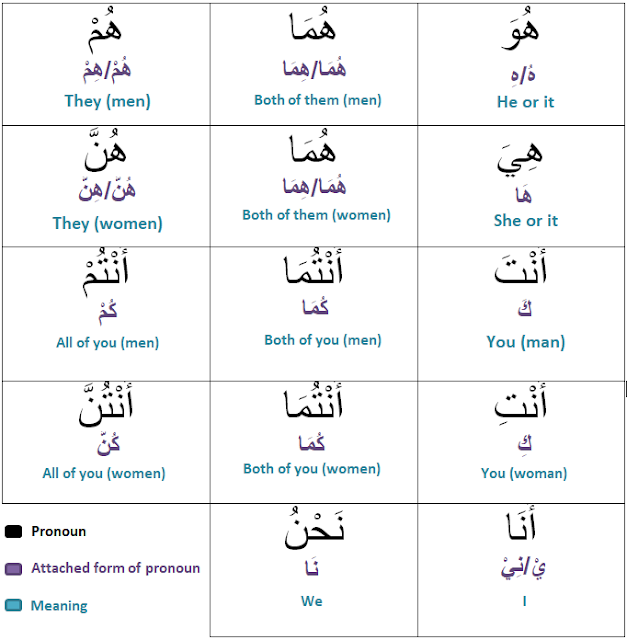Arabic Pronouns (dhameer)

The chart above shows the pronouns of the Arabic language. Below each pronoun is its attached form (in purple). Pronouns can be seen independently or attached to a word. For example هُوَ which means ‘he or it ’ can be attached to a word like كِتَابُ (which means book). To attach, we should look for the attached form of the pronoun. Attached form of هُوَ is هُ so we can say كِتَابُهُ and this would mean, ‘his book.’ Some pronouns have two attached forms. We choose the attached form for a pronoun depending on the harakah (fili) on the last letter of the word. For example if the word was كِتَابِ it will be very difficult and sounds weird to say كِتَابِهُ so the Arab says كِتَابِهِ and this would also mean ‘his book’. So the second form of an attached pronoun is only used when there is a kasra (ibifili) on the last letter. The pronoun ‘ana’ is an exceptional case. We can change the last harakah of the word to make the word end with an ‘ee’ sound. For example, i...
